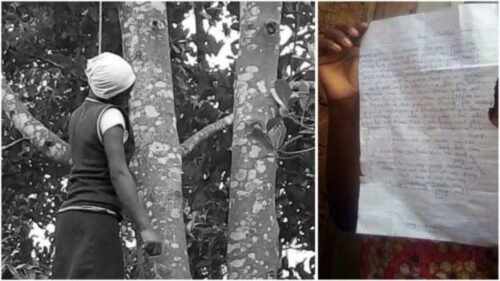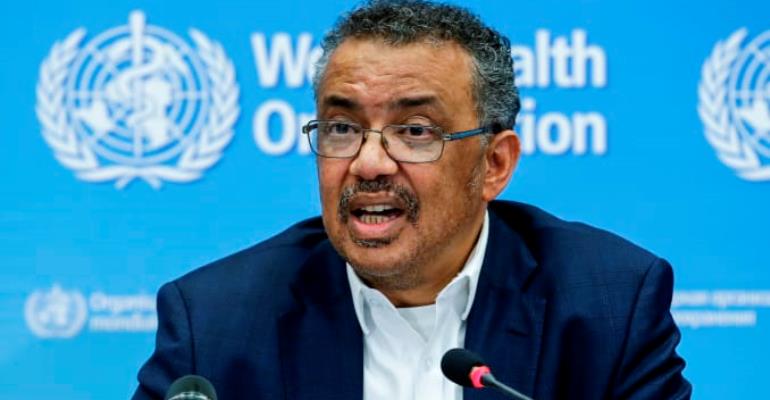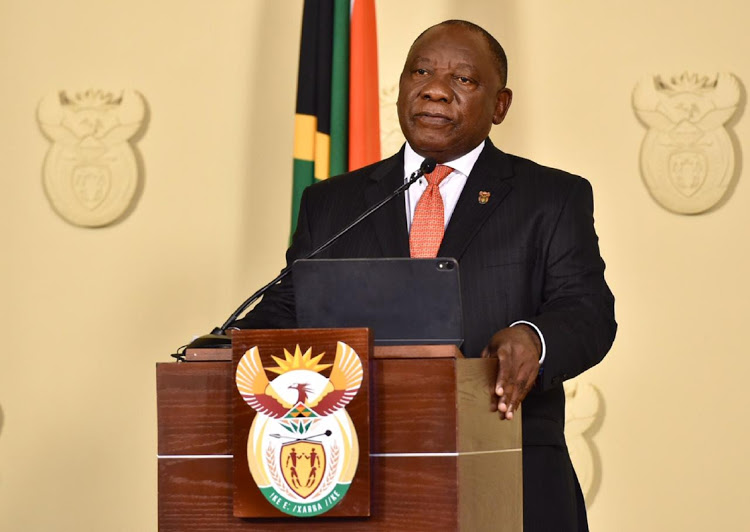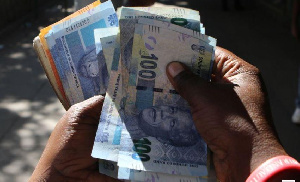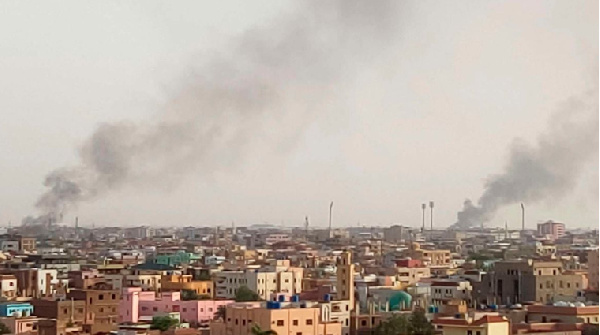News Africa
Russia, Angola Economic Relations Rising to unprecedented Levels

Russia and Angola have had excellent relations dating from historical Soviet era. Russia, more or less, invested in Angola, even after the Soviet collapse political dialogues and economic cooperation have been the strategic focus in their bilateral relations. Angola officials participated in the first and second Russia-African summits, and the Joint Russia-Angola Economic and Trade Commission meet regularly either in Moscow or in Luanda, the capital of Angola.
Delving a bit back into the history, Soviet-Angolan relations were strained at times during the 1980s, in part because Angola sought to upgrade diplomatic ties with the United States. Soviet leadership factions were divided over their nation’s future role in Africa, and some Soviet negotiators objected to Angolan President José Eduardo dos Santos’s concessions to the United States on the issue of “linkage”.
On the opposite side Angolan leaders, in turn, complained about Soviet neglect – low levels of assistance, poor-quality personnel and matériel, and inadequate responses to development and corporate business complaints. Moreover, dos Santos complained that the Soviet Union dealt with Angola opportunistically – purchasing Angolan coffee at low prices and re-exporting it at a substantial profit, overfishing in Angolan waters, and driving up local food prices.
That however, Angola utterly condemned Russia regarding the Russian invasion of Ukraine. Russia refers to it as ‘special military operation’ aims at de-militarizing and de-nazifying its neighbouring republic who ahs attained independence and therefore, at least, its territorial and sovereignty be respected.
With the geopolitical changes, Russia and Angola still have several bilateral agreements. Russia is straddling to make noticeable its economic marks inside Africa. Compared to the Soviet era, trade between Russia and Angola is quite minimal. Statistics are difficult to find as Russia has made such information under marked ‘confidential files’ but what is available says, for instance, in 2021, exports from Russia to Angola amounted to $567.9 million and Angolan exports to Russia amounted to just $14.9 million. These figures were made public in local Russian media during the official visit of Angolan President João Lourenço to the Kremlin in 2019.
In is necessary to understand that expectations and approaches during the Africa’s liberation struggle to attain independence were different from the current times, this so-called emerging multipolar order. And as such, many African countries are currently looking for profitable business, investment and trade rather than development aid. Now Angola, a south-central Africa, has corporate plans to diversify its state business away from purchasing to full-fledged Russian military equipment for the southern African market, and possibly other regions in Africa.
Despite consistent assurances made by high-ranking Russian officials that Africa is “in the mainstream of Russia’s foreign policy” have not been substantiated by systematic noticeable completed projects, and worse serious lack of financial support for bilateral agreements, and this has necessitated the pulling out of a number of Russian companies from Africa.
According to various sources, bilateral agreements continue to face challenges and obstacles, including lack of appreciable financial support, while Moscow increasingly prioritize anti-Western rhetoric and political confrontation in the context of the great power competition in Africa. Grappling with reality, Russia has abandoned its lucrative platinum project contract that was signed for $3 billion in September 2014, the platinum mine in the sun-scorched location about 50 km northwest of Harare, the Zimbabwean capital. Reasons for the abrupt termination of the bilateral contract have still not been made public, but Zimbabwe’s Centre for Natural Resource Governance pointed to lack of capital for the project.
Foreign Minister Sergey Lavrov launched the $3 billion Russian project back in 2014, after years of negotiations, with the hope of raising its economic profile in Zimbabwe. The development of the platinum deposit in Darwendale involves a consortium consisting of the Rostekhnologii State Corporation, Vneshekonombank and Vi Holding in a joint venture with some private Zimbabwe investors as well as the Zimbabwean government.
It took several years to start the construction of the nuclear plants in Egypt. It only started in 2021 with a loan offered by a Russian bank to finance the Rostaom’s $29 billion nuclear plants. The agreement was signed in 2015.
Russia’s VTB head Andrei Kostin, said in an interview with the French newspaper Les Echos, that the VTB might sell its subsidiary bank in Angola due to sanctions. According our research, VTB was one of the first to be added to the United States and European Union (EU) sanctions lists, which hit the bank’s international business hard, following the launch of the ‘special military operation’ in neighbouring Ukraine in late February 2022.
According its information portal, VTB owns 50.1% of Banco VTB Africa. The president of the Angolan state-owned company Endiama, Antonio Carlos Sumbula, owned the other 49.9% of the bank’s shares. But, VTB currently focuses on work in Russia and in countries with which there has a large volume of foreign trade, above all China, trade with which reached $190 billion in 2022.
In December 2018, Russia’s Nornickel terminated its deal with Botswana’s BCL Group. According to TASS News Agency, quoting the media release, Russia’s Norilsk Nickel has terminated its agreement to sell African assets to Botswana’s BCL Group, including a 50% stake in the Nkomati joint venture.
It said that the Russian company would continue to seek damages from the BCL Group for the losses it suffered due to BCL’s failure to meet the terms of the agreement. The termination of the agreement would also enable Norilsk Nickel to pursue its own strategy for the African assets, Michael Marriott, Norilsk Nickel Africa’s Chief Executive, said as quoted by the press service.
In East African region, Russia’s RT-Global Resources and Rosneft quitted Ugandan President Yoweri Museveni’s oil refinery project and many major infrastructure deals. Russia had pledged $4 billion but later disagreements over terms and frustration over in-fighting, intrigue and lobbying forced them to pull out of the country. The Ugandan government team noted that the Russian consortium exhibited inadequate assurance and availability of preferred alternative foreign contractors with comparatively high bidding terms.
Museveni, at first, favored the Russians because, apart from considering access to weapons, the Ugandan leadership was also counting on Russia’s world superiority as a counterweight to both western powers; mainly America, and China. With Russians and the South Koreans out of the negotiations, Uganda appeared somewhat desperate, that was back in 2014.
Similarly to remind that Rosneft also abandoned its interest in the southern Africa oil pipeline construction, soon after its delegation in Angola had discussed the possible participation of the Kremlin-controlled company in exploration and development projects there. That project never appeared despite that fact that Russia has excellent relations with Angola, Mozambique, South Africa and Zimbabwe. From both business and political perspectives, the region is considered as unipolar and a regional power all together with South Africa. Kremlin has been pushing these African countries and the leaders to take stern political actions for dealing with neo-colonial approaches and western hegemony.
Notwithstanding that, African leaders still keep their eyes for western traditional partners. U.S. President Joe Biden hosted the U.S.-Africa leaders summit which was attended by nearly the entire continent, accept the West African French-speaking military leaders. African-American relations is inseparable due to strong closely-knitted cultural ties, the Diaspora remittances estimated at $68 billion in 2023 and other business connections. Unlike Russia, frequent travels are facilitated between the two regions, and chances of employment attracts Africans. The African Growth and Opportunities Act (AGOA), which allows customs-free goods and services will be extended until 2036.
Of course, the point is simple. Angolan President João Lourenço has to deliver on its election pledges especially transform the economy, engage in innovative improvement of the economic sectors to ensure internal food security, support agriculture and industrialize – these are primary steps toward creating employment. Angola needs modern infrastructure in transport, education, health and public sectors. These, perhaps, have to be the strongest dimension of Russia’s dealings with Africa at present time, the era of emerging multi-polar that consistently features at various summits and conferences.
On 26 April 2024, Interfax Information News Agency reported that Alrosa will have to sell its stake in Angola’s Catoca diamond mining company owing to the latter’s concerns about the prospects for collaborating with the sanctioned Russian company. “The Angolans believe that the presence of Alrosa as a key shareholder is preventing them from developing their business. In general, they have fair reasons for this. We are already seeing that many Western companies, both suppliers and buyers of stones, are beginning to say, ‘You have Alrosa as a shareholder, so we will not work with you’. Therefore, various options are currently under consideration, though the meaning of this is of course that the asset will have to be sold, apparently,” Deputy Finance Minister Alexei Moiseyev said.
Moiseyev also said that negotiations on Alrosa’s exit have moved in a constructive direction, and the transaction amount is under discussion with “friendly investors”. India has even imposed a two-month embargo on rough diamond purchases in order to normalize inventories amid weak demand on the jewelry market. “Therefore, the market is, of course, fairly difficult at the moment, but we’re looking at its condition altogether constructively. That is, we of course don’t expect such a collapse like there was in the first half of 2020,” Moiseyev said.
“Naturally, Alrosa, as a sanctioned company, will have a number of restrictions in terms of the development of such local assets, and this concerns the Angolan side. We do, indeed, have a certain problematic issue in relations with the government of Angola,” Moiseyev said. Alrosa, Angola continuing negotiations on Catoca with the goal of “ensuring the progressive development of local assets,” which is hampered by sanctions.
The European Union (EU) has imposed sanctions on Russia’s diamond miner Alrosa and its CEO Pavel Marinychev, the Council of the European Union said in a statement on January 3. These designations complement the import ban of Russian diamonds as part of the 12th package of economic and individual sanctions adopted on 18th December 2023, according to the Council.
Pavel Marinychev replaced Sergei Ivanov, who has headed the company since 2017. And the United States designated Marinychev in July 2023. Alrosa has been on the U.S. sanction list since April 2022. “Our strategic priorities remain unchanged. Despite the complicated geopolitical conditions, we will solidify the resource base, and improve production efficiency and management quality,” Marinychev was quoted as saying in the corporate press release.
As reported, the EU was to impose a direct ban on imports of non-industrial natural and synthetic uncut diamonds and diamond jewelry from Russia starting January 1, 2024. An indirect import ban on diamonds cut in third countries, including jewelry containing diamonds originating from Russia, would start being imposed gradually on 1st March 2024 and this process is to be completed by 1st September 2024.
Angolan publication Expansao reported at the end of January that Angola is forcing Alrosa to exit the Catoca diamond mine (Sociedade Mineira de Catoca), in which the Russian company owns a 41% stake, and without compensation.
In January 2023, and even earlier Angola has been discussing the possibility of transfering infrastructure projects to other reliable external players. China has already done a lot for Angola, but to continue its economic agenda, Angola shows keen interest in establishing more investment partners from the United States. This major realignment underway with the United States will involve undertaking infrastructures such as the U.S.-funded Lobito railway project in the region. The rail corridor will channel cobalt, copper and other critical minerals out of Angola and its neighbours, diversifying U.S. supplies of raw materials critical to the green revolution.
Biden administration officials say Angola’s warming relationship with Washington is a win for both countries and a model for economic cooperation with nations that have at times felt neglected by the United States or portrayed as pawns in bigger geopolitical maneuvers. They characterize the turnaround in Angola as an especially positive sign of the United States’ appeal as a partner in Africa and across the developing world.
Many African countries, including Angola, in the continent still face several daunting challenges, despite their huge endowed resources (both natural and human) to uplift economic development and work towards expected growth. Understandably, Angola is indiscriminately casting its net widely, intensifying diverse multifaceted efforts to undertake large investments. Unlike China, Russia financial institutions are simply not giving out concessionary loans for Africa, therefore Russia’s prospects to undertake large-scale investments still remain bleak across Africa. Noting consistently that Africa—is the continent of the future, large Russian corporations plan a strategy to enter Africa, but in practical terms, do not have enough resources to engage in such investment expansion. A structured system of financing is challenging and generally limited.
As a well-known fact, Russia is increasingly offering ostentatious investment projects by signing ‘ready-to-go bilateral agreements’ without disposition of the much-needed financial and logistic resources in the key-sectors it has shown interest in Africa. This is not the appropriate time for judgement, but suffice to conclude that Russia’s economic ties and political dialogues between African states have been increasing for decades. Africa seriously considers Russia as one of the key multipolar stalwarts, and yet little economic impact it has recorded since Soviet collapse. Therefore, with the contradictions and complexities it is better to take advantage to look elsewhere for reliable alternatives !
In practical terms, Russia needs to go beyond its traditional rhetoric of Soviet-era assistance rendered to sub-Saharan African countries. It has to strategic take steps to implement bilateral agreements to back its struggle for a fairer African world and anti-Western neocolonialism which dominates its newly-approved foreign policy concept. According to the document, Russia intends to support the establishment of Africa as a distinctive and influential centre of world development. Its priority here is Russian-African cooperation in various spheres on a bilateral and multilateral basis, primarily within the framework of the African Union (AU) and the Russia-Africa Partnership Forum created in October 2019.
Source: Thepressradio.com|Kestér Kenn Klomegâh

